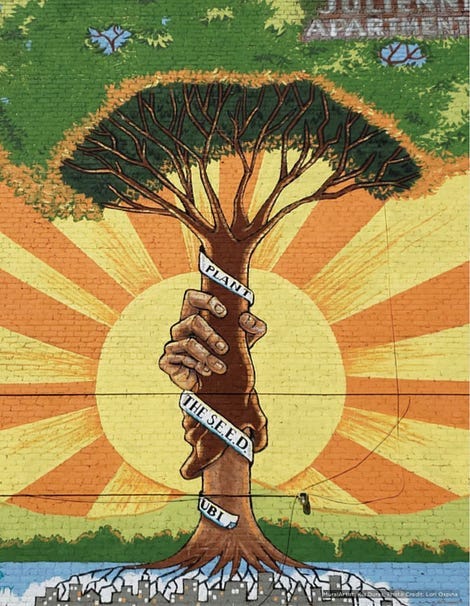20250824
“Mario Krenn has a unique job in the field of physics. As the research group leader at the Artificial Scientist Lab at the Max Planck Institute for the Science of Light in Erlangen, Germany, he builds machine-learning algorithms that can create novel, improved ways of designing experiments that human minds might miss. And, as he explains in this video from Quanta Magazine, his team has already seen some incredible results, with some of the AI-generated designs improving on the best ideas thought up by humans, and one algorithm even discovering a new way to entangle quantum particles. In time, Krenn believes these methods could greatly accelerate progress in the field, with algorithms making discoveries that physicists will simply have to interpret.” - QM
Tech: AI chips evade controls. ServiceNow replacing its workers with AI. Is AI a bulb or dynamo? China impact on OpenSource. 2025 techs. Quantum means new maths. Human assembly code outperforms AI. Why is AI slow to percolate.
Business: Future of retail is offline. Degree in sanctions evasion. FBI and polygraph. Wrong password for MacDonald’s.
People: the shire economy. The OSINT framework. Jobs are fracturing. Meta and political ads in the EU. Donating to the US treasury? Chess pays.
Planet: Petrichor. Corn sweat. Recording of an earthquake fault. Svalbard thaws.
AI: Microsoft provides support to reshaping teams. LLMs can do math. AGI and war (PDF).
AI addition.
En vacances sinon - ce post est programmé depuis quelques semaines ;)


"Bytes of Life"
The dim light of the corner café flickered, casting surreal shadows on the patrons buried in their screens, desperately seeking an escape from realities far more boring than their newest AI companions. Most were oblivious to the oppressive wave of heat outside, fist-bumping the thermometer at a lazy 110°F, or as it’s referred by the more poetic: “corn sweat season.” The aroma of petrichor wafted through the cracked window, eliciting faint murmurs of nostalgia for rain that seemed to have forgotten how to reach the city.
At a corner table, Max, a budding software engineer with ambitions of revolutionizing fast-food applications, fidgeted with his device. Recent headlines loomed over him: an AI chatbot from a well-known burger chain had leaked millions of applicants' sensitive info. “Brilliant,” he muttered with the kind of irony only a techie can appreciate. Maybe "Olivia" was simply their not-so-friendly neighborhood overseer when it came to job applications. But for Max, such mishaps didn’t deter his aspiration; he was convinced his AI overlord could be taught to serve fries and life advice simultaneously—wasn’t that what technology was made for?
The sputtering of raindrops against the window broke his concentration. A web application he'd created, “Your Life in Weeks,” urged him to pause and reflect on his life's timeline, each week a box, each box calling for absurdity to fill it. “Sparse moments of brilliance or plain apathy?” he pondered, thinking of the countless hours he'd spent optimizing code rather than optimizing his life choices. The poignancy of his choices twisted around him like ghosts of decisions made over long nights coding under a neon glow.
He pulled up the latest reports from the Higher School of Economics—the world had shifted in ways more bizarre than the weather. Students were now training to navigate a landscape peppered with sanctions, Bitcoin, and advanced quantum cryptography. “Perhaps they could run an app too? 'Escape Ransom: the Freedom Initiative'!” he chuckled, thinking how it might draw in the kind of customers who were tired of politics and poverty mixed with tech.
Across the café, a meeting for Internet Addicts Anonymous unfolded, openly discussing their struggles with dependency on AI tools. One brave soul shared, “I found myself refreshing job boards instead of applying. It’s like getting caught in a black hole of scrolling!” Laughter erupted, and Max wondered if they understood that their plight mirrored his own—both chained to technology, yet yearning for something richer.
If only they could embed resilience into the web applications of their lives as easily as cryptographers were now intertwining puzzles that could thwart the cleverest hackers! Max could feel the magnetism of duality: the tension between emerging possibilities and a world reluctant yet desperate for change. It echoed through the lives that gathered here, waiting for breakthroughs that often seemed as elusive as the rain they longed for.
Just as he was about to close his laptop and dive into the human connection sitting at the table next to him—two people sharing a piece of real fruit rather than pixels—an alert flashed across his screen. One of the algorithms had successfully decrypted a riddle he’d embedded in his life-timeline app. “Dare I link this one, ‘Riddles of Existence’ for those who long for context?” he pondered, lifting his head as rain suddenly poured outside, drenching the asphalt in fleeting, glossy reflectivity.
As he watched, for a moment, the world outside felt a little less static, a bit more alive. It was a reminder that amidst the clamor of bits and bytes, life, in all its messy unpredictability, continued to be the greatest adventure of all.

